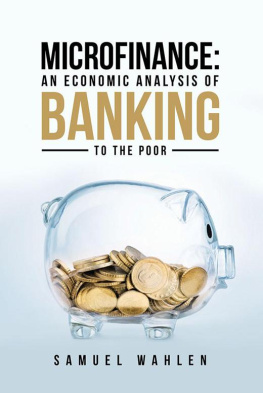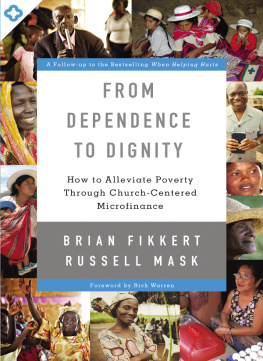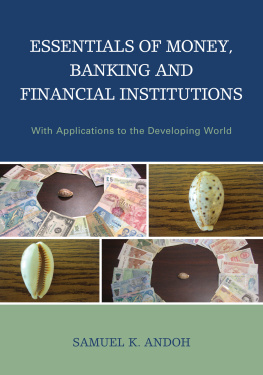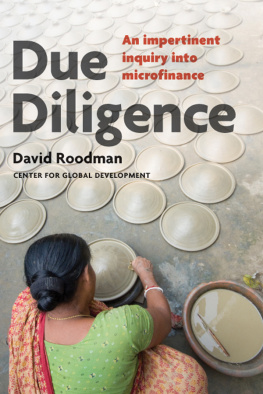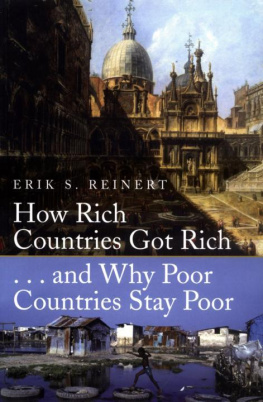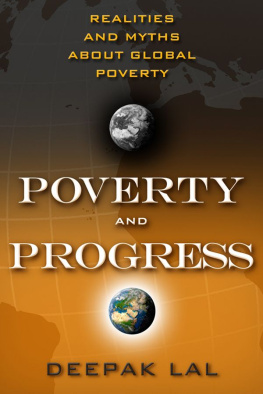MICROFINANCE:
AN ECONOMIC ANALYSIS OF
BANKING
TO THE POOR
Samuel Wahlen

Copyright 2017 Sam Wahlen.
All rights reserved. No part of this book may be used or reproduced by any means, graphic, electronic, or mechanical, including photocopying, recording, taping or by any information storage retrieval system without the written permission of the author except in the case of brief quotations embodied in critical articles and reviews.
This book is a work of non-fiction. Unless otherwise noted, the author and the publisher make no explicit guarantees as to the accuracy of the information contained in this book and in some cases, names of people and places have been altered to protect their privacy.
Archway Publishing
1663 Liberty Drive
Bloomington, IN 47403
www.archwaypublishing.com
1 (888) 242-5904
Because of the dynamic nature of the Internet, any web addresses or links contained in this book may have changed since publication and may no longer be valid. The views expressed in this work are solely those of the author and do not necessarily reflect the views of the publisher, and the publisher hereby disclaims any responsibility for them.
Any people depicted in stock imagery provided by Thinkstock are models, and such images are being used for illustrative purposes only.
Certain stock imagery Thinkstock.
ISBN: 978-1-4808-4709-5 (sc)
ISBN: 978-1-4808-4710-1 (e)
Library of Congress Control Number: 2017942870
Archway Publishing rev. date: 06/26/2017
CONTENTS
W e live in an amazing time. The pace at which technology is improving is absolutely remarkable. Between the headlines of the latest celebrity relationship breakups and major court cases, one can see news of the latest innovationsaccomplishments that have the potential to revolutionize our way of life. As some individuals get new smart phones and others benefit from the great strides being made in medical fields, it seems that civilization is rapidly progressing. However, amid this progress, some are being left behind. Many do not enjoy the impact of all this change as the blessings of the technological innovation transforming our culture. For hundreds of millions of people around the world, challenging times do not show any signs of becoming easier. As if struggling with the weight of the world on their shoulders, many bear the burden of poverty.
Poverty destroys everything that is optimistic and positive about life. It forces people to live in horrible conditions, work miserable hours for nearly nonexistent pay, and become vulnerable to devastating environmental destruction and deadly diseases. It is no mystery that the places where people suffer the most from famine, illness, and violence are countries that remain largely underdeveloped and have some of the highest rates of poverty. The poor find themselves trapped. They struggle to feed their families. They work long hours for little pay. They need every bit of their earnings to put food on the table and roofs over their heads. They feel trapped. Unable to save, make improvements to their living conditions, or educate themselves or their children, they see no end to the nightmare. They suffer health issues due to poorly structured homes, bad habits and diet, and challenging lifestyles. Infection spreads quickly and is hard to prevent. These health issues force many of the poorest of the poor to make additional sacrifices to pay for health care, compounding an already difficult situation.
As the poor struggle, criminals and terrorist groups take advantage of the situation. Throughout history, extremist groups have used poverty to justify violence. They persuade their neighbors and families that other people are to blame for their situation. In some developing countries, such as Afghanistan or Columbia, people resort to growing illegal drugs, which eventually make their way to the United States. Furthermore, criminals might convince poor youth that crime is their only possible escape from a dim future. Often, the poor become pawns, used and preyed upon by evil people. Dictators use persuasive rhetoric to get the support of depressed and disenchanted populaces. Like bullies in a schoolyard, local crime bosses or corrupt and power hungry politicians rob, cheat, and abuse the poor.
It is a shame that poverty still exists to such an extent. Human beings should not have to live in such dire circumstances. While some make bad decisions that lead to poverty, many never even have a choice. Born into poverty, they find it impossible to escape.
When helping the poor, the goal does not need to be unanimous economic equality. Instead, the focus should be to provide opportunity to those that seek to escape the clutches of poverty.
Unfortunately, when discussing poverty, its easy to lose an audience. People can become lethargic and disinterested, sensing hopelessness and feeling apathy. People are quick to ask what the point is or why they should help those on the other side of the world when there are people struggling nearby. Both are very fair questions and deserve answers. People often use theological texts to reinforce their responses. However, there are more than moral and ethical reasons to help those in need. For starters, assisting the poor can offer both economic and security benefits.
Economically speaking, poverty is harmful to everyone. Economic development breeds economic development. Businesses do better when more people can afford their products. When businesses do better, they spend money to make improvements, construct new buildings and expand operations, and hire additional employees. Therefore, everyone has an incentive for others to be wealthier. A business owner needs people to buy the companys products or services. A construction worker needs businesses to grow and people to buy new homes or make home improvements. The more people can afford goods and services, the more potential customers there are.
The same is true internationally. When individuals and businesses are financially stronger in country A, they can and will purchase more products and equipment from country B. However, the opposite is also true. If county A is poor, then it will buy fewer products and services from country B. In real world terms, if South Africa experiences high levels of economic growth and the median income levels rise, its citizens will be able to afford more American products. However, if South Africa goes through a recession and has negative economic growth, it will decrease its imports from countries like the United States.
In addition, the United States has a national security motive for combating poverty in foreign countries. Although it would be easy and convenient to assume that the United States does not need and is not impacted by small, underdeveloped countries, this is a false and dangerous supposition. As seen by the horrible events on September 11, 2001, the United States is not immune to the activities of groups in other countries. Terrorist and criminal organizations use poverty to legitimize their groups and recruit new members. Eliminating poverty or creating alternative opportunities undermines their operations. There may always be criminals and violent individuals, but creating economic development can handicap their recruiting and reduce profits as the poor see alternatives to growing illegal drugs. Bullies are only powerful when no one opposes them. Helping poor individuals create income-generating activities allows them to have a voice in their communities. Just as the middle class has strengthened democratic institutions in the United States, it can do so in other countries.
If the United States desires to expand trade, create jobs, and strengthen its national security, we must address the fundamental issues behind the problems we face. The poor must be engaged in the international economy and become trading partners. They need ways of producing income if we hope to eliminate the terrorist organizations that plague their communities. The poor have to be able to afford our products if we wish to have them purchase them.
Next page
